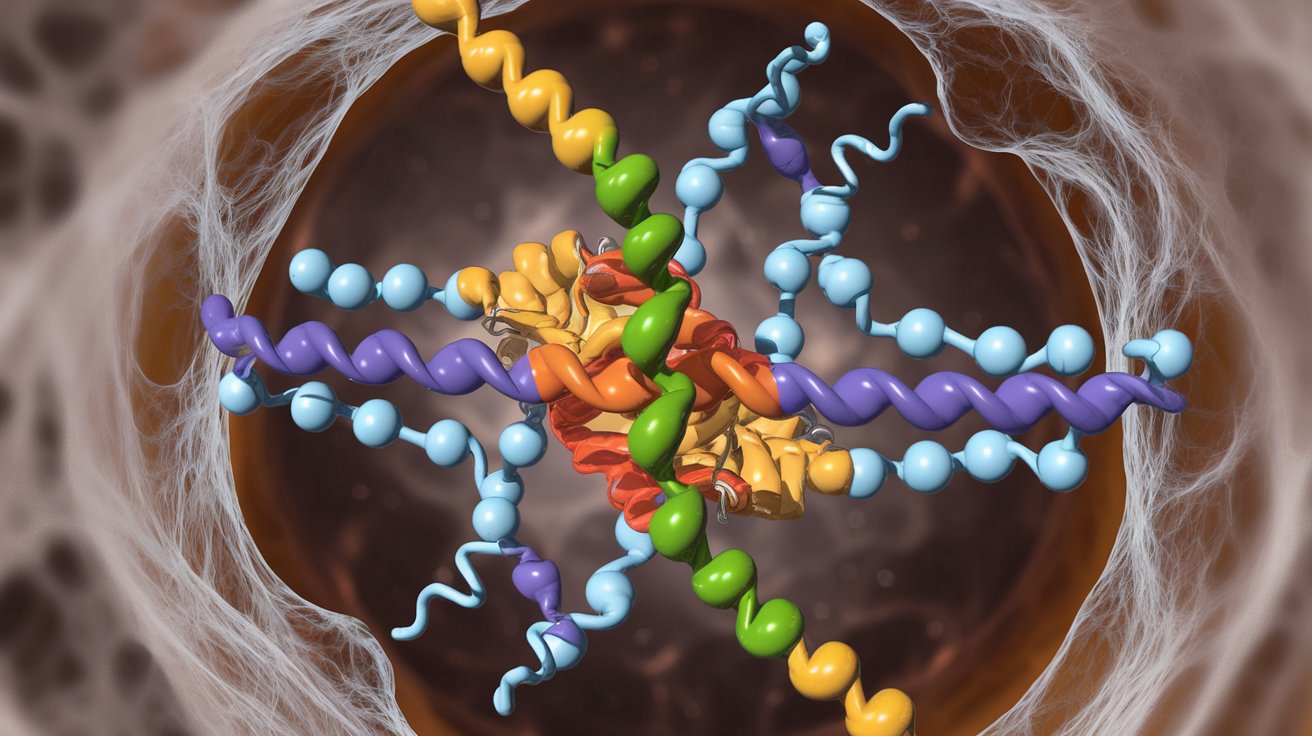
Cholecystokinin (CCK) is a fascinating hormone with a big role in digestion and appetite regulation. Ever wondered how your body knows when to stop eating? CCK is part of that process. Released by cells in the small intestine, this hormone signals the brain to feel full and satisfied. But that's not all! It also stimulates the gallbladder to release bile, aiding in fat digestion. Plus, it helps the pancreas secrete enzymes necessary for breaking down food. Understanding CCK can give insights into how our bodies manage hunger and digestion. Ready to learn more? Here are 30 intriguing facts about CCK!
Key Takeaways:
- Cholecystokinin (CCK) helps digest food and control appetite. It tells the body to release bile for fat digestion and signals the brain when we're full.
- CCK also plays a role in the nervous system and has clinical significance in diagnosing digestive disorders. It was discovered in 1928 and has potential therapeutic applications.
What is Cholecystokinin (CCK)?
Cholecystokinin (CCK) is a hormone that plays a crucial role in digestion and appetite regulation. It is produced in the small intestine and has various functions in the body. Here are some fascinating facts about CCK:
- CCK is released by cells in the small intestine in response to food, especially fats and proteins.
- It stimulates the gallbladder to contract and release bile into the small intestine, aiding in fat digestion.
- CCK also prompts the pancreas to secrete digestive enzymes, which help break down proteins, fats, and carbohydrates.
- This hormone slows down gastric emptying, allowing more time for nutrients to be absorbed in the small intestine.
- CCK acts on the brain to promote feelings of fullness and reduce appetite, helping to regulate food intake.
Functions of Cholecystokinin in Digestion
CCK has several important functions in the digestive system. Let's explore some of them:
- It enhances the digestion of dietary fats by increasing bile flow.
- CCK helps in the emulsification of fats, making them easier to digest.
- It stimulates the production of pancreatic juice, which contains enzymes necessary for nutrient digestion.
- This hormone also helps in the absorption of fat-soluble vitamins like A, D, E, and K.
- CCK plays a role in the regulation of gastric acid secretion, ensuring optimal pH levels for enzyme activity.
Cholecystokinin and Appetite Regulation
CCK is not only involved in digestion but also in controlling hunger and satiety. Here are some interesting facts about its role in appetite regulation:
- It signals the brain to stop eating by acting on the hypothalamus, the brain's hunger center.
- CCK levels increase after a meal, contributing to the feeling of fullness.
- This hormone works in conjunction with other appetite-regulating hormones like leptin and ghrelin.
- CCK's appetite-suppressing effects can help in weight management and preventing overeating.
- Some studies suggest that CCK may have potential therapeutic applications for obesity treatment.
Cholecystokinin in the Nervous System
Beyond its digestive and appetite-regulating functions, CCK also has roles in the nervous system. Here are some facts about CCK's involvement in the nervous system:
- CCK is found in the brain and acts as a neurotransmitter, influencing various brain functions.
- It is involved in the regulation of anxiety and stress responses.
- CCK receptors are present in different brain regions, including the cortex, hippocampus, and amygdala.
- This hormone has been linked to the modulation of pain perception.
- CCK may play a role in memory and learning processes.
Clinical Significance of Cholecystokinin
CCK has clinical significance in various medical conditions and treatments. Here are some facts about its clinical relevance:
- Abnormal CCK levels have been associated with digestive disorders like pancreatitis and gallstones.
- CCK tests can help diagnose certain gastrointestinal conditions.
- Synthetic CCK is used in diagnostic procedures like the CCK-cholescintigraphy to assess gallbladder function.
- CCK receptor antagonists are being studied for their potential in treating anxiety and panic disorders.
- Research is ongoing to explore the therapeutic applications of CCK in obesity and metabolic disorders.
Interesting Facts about Cholecystokinin
Here are some additional intriguing facts about CCK that you might find interesting:
- CCK was first discovered in 1928 by Ivy and Oldberg.
- It was initially named "pancreozymin" due to its role in stimulating pancreatic enzyme secretion.
- The name "cholecystokinin" comes from the Greek words "chole" (bile), "cyst" (bladder), and "kinin" (to move).
- CCK exists in multiple forms, with CCK-8 being the most common and biologically active form.
- This hormone has a short half-life, meaning it is rapidly broken down and cleared from the bloodstream.
Final Thoughts on Cholecystokinin
Cholecystokinin (CCK) plays a crucial role in digestion and appetite regulation. This hormone, produced in the small intestine, helps break down fats and proteins by stimulating the release of digestive enzymes and bile. CCK also sends signals to the brain to promote feelings of fullness, helping to control food intake.
Understanding CCK's functions can offer insights into managing digestive health and weight. For instance, high-fat meals trigger more CCK release, which can help you feel fuller longer. On the flip side, low levels of CCK might contribute to overeating or digestive issues.
Incorporating foods that stimulate CCK, like proteins and healthy fats, into your diet can support better digestion and appetite control. So, next time you plan a meal, remember the role of CCK and make choices that benefit your overall well-being.
Frequently Asked Questions
Was this page helpful?
Our commitment to delivering trustworthy and engaging content is at the heart of what we do. Each fact on our site is contributed by real users like you, bringing a wealth of diverse insights and information. To ensure the highest standards of accuracy and reliability, our dedicated editors meticulously review each submission. This process guarantees that the facts we share are not only fascinating but also credible. Trust in our commitment to quality and authenticity as you explore and learn with us.
